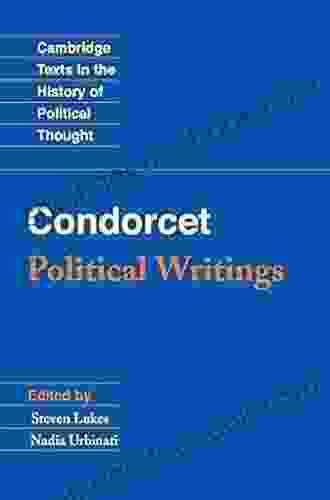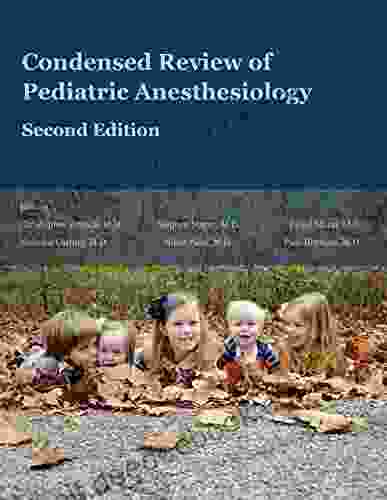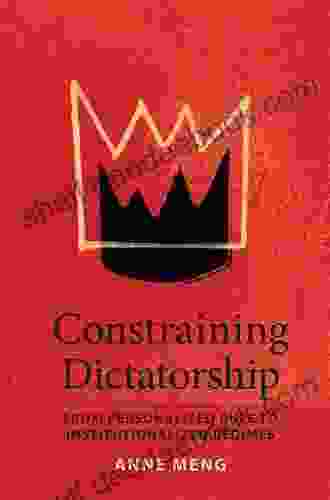From Personalized Rule to Institutionalized Regimes: The Political Economy of Autocratic Survival

Autocratic regimes, characterized by their concentration of power in the hands of a single individual or a small group, have long been a subject of study for political scientists and economists. One key question in this field of research is how autocratic regimes manage to survive and perpetuate their power over time.
5 out of 5
| Language | : | English |
| File size | : | 5692 KB |
| Text-to-Speech | : | Enabled |
| Screen Reader | : | Supported |
| Enhanced typesetting | : | Enabled |
| Word Wise | : | Enabled |
| Print length | : | 276 pages |
In recent years, scholars have increasingly recognized the importance of political economy factors in understanding autocratic survival. This article examines the political economy of autocratic survival, focusing on the transition from personalized rule to institutionalized regimes.
Personalized Rule
Personalized rule is a form of autocracy in which power is highly concentrated in the hands of a single leader, who often holds absolute or near-absolute authority. This type of regime is typically characterized by the absence of institutionalized mechanisms of power sharing and succession, as well as a high degree of corruption and rent-seeking behavior.
Personalized rule is often seen as an unstable form of government, as it is highly dependent on the personal charisma and legitimacy of the leader. When the leader dies or loses power, the regime is often unable to survive without undergoing a major transformation.
Institutionalized Regimes
Institutionalized regimes, on the other hand, are characterized by a higher degree of institutionalization, which refers to the existence of formal rules, procedures, and organizations that regulate the exercise of power. In institutionalized regimes, power is not concentrated in the hands of a single individual, but rather is shared among a broader group of elites.
Institutionalized regimes are generally seen as more stable than personalized rule, as they are less dependent on the personal charisma and legitimacy of the leader. They are also more likely to survive the death or departure of the leader, as the institutions provide a framework for the smooth transfer of power.
The Transition from Personalized Rule to Institutionalized Regimes
The transition from personalized rule to institutionalized regimes is a complex and challenging process. There is no single formula for success, but some key factors that have been identified include:
- Resource dependence: Autocratic leaders who are heavily dependent on natural resources or other sources of income are more likely to institutionalize their regimes in order to secure their access to these resources.
- Institutionalization: The process of institutionalization involves the creation of formal rules, procedures, and organizations that regulate the exercise of power. This can help to reduce corruption and rent-seeking behavior, and make the regime more accountable to its citizens.
- Power concentration: Autocratic leaders who are able to concentrate power in their own hands are more likely to institutionalize their regimes in order to prevent challenges to their authority.
- Elite co-optation: Autocratic leaders can institutionalize their regimes by co-opting elites into the regime, giving them a stake in its survival.
- Rent-seeking behavior: Autocratic leaders who engage in rent-seeking behavior are more likely to institutionalize their regimes in order to protect their ill-gotten gains.
The transition from personalized rule to institutionalized regimes is a complex and challenging process, but it is one that can lead to greater stability and longevity for autocratic regimes. By understanding the political economy factors that contribute to autocratic survival, scholars and policymakers can better understand the challenges of promoting democracy and good governance in autocratic countries.
5 out of 5
| Language | : | English |
| File size | : | 5692 KB |
| Text-to-Speech | : | Enabled |
| Screen Reader | : | Supported |
| Enhanced typesetting | : | Enabled |
| Word Wise | : | Enabled |
| Print length | : | 276 pages |
Do you want to contribute by writing guest posts on this blog?
Please contact us and send us a resume of previous articles that you have written.
 Book
Book Page
Page Chapter
Chapter Text
Text Story
Story Reader
Reader Library
Library Paperback
Paperback E-book
E-book Paragraph
Paragraph Bibliography
Bibliography Preface
Preface Footnote
Footnote Scroll
Scroll Codex
Codex Tome
Tome Classics
Classics Narrative
Narrative Biography
Biography Reference
Reference Dictionary
Dictionary Thesaurus
Thesaurus Resolution
Resolution Librarian
Librarian Catalog
Catalog Borrowing
Borrowing Stacks
Stacks Lending
Lending Reserve
Reserve Academic
Academic Journals
Journals Reading Room
Reading Room Rare Books
Rare Books Interlibrary
Interlibrary Literacy
Literacy Thesis
Thesis Storytelling
Storytelling Reading List
Reading List Theory
Theory Textbooks
Textbooks Michael Patterson
Michael Patterson Mark Vail
Mark Vail Vuvu Publications
Vuvu Publications Julian Sedgwick
Julian Sedgwick Lee Edwards
Lee Edwards David Hendrix
David Hendrix Jeffrey Ullom
Jeffrey Ullom John D Lyons
John D Lyons John Mclaughlin
John Mclaughlin Lesley Cookman
Lesley Cookman Anthony Bozza
Anthony Bozza Robert Foskett
Robert Foskett E N Brandt
E N Brandt Jon Lymon
Jon Lymon Meta Washington
Meta Washington Mary Ann Rodman
Mary Ann Rodman Blair Imani
Blair Imani John Buchan
John Buchan Jedediah Purdy
Jedediah Purdy Sandeep Kautish
Sandeep Kautish
Light bulbAdvertise smarter! Our strategic ad space ensures maximum exposure. Reserve your spot today!

 Arthur Conan DoyleMaster the Art of Kabuki Drops: A Comprehensive Guide with DIY Design Plans
Arthur Conan DoyleMaster the Art of Kabuki Drops: A Comprehensive Guide with DIY Design Plans Fletcher MitchellFollow ·10.6k
Fletcher MitchellFollow ·10.6k Eli BlairFollow ·18.6k
Eli BlairFollow ·18.6k Gene SimmonsFollow ·6.4k
Gene SimmonsFollow ·6.4k Cody BlairFollow ·5.7k
Cody BlairFollow ·5.7k Ian PowellFollow ·2.8k
Ian PowellFollow ·2.8k Devon MitchellFollow ·6.3k
Devon MitchellFollow ·6.3k John KeatsFollow ·10.3k
John KeatsFollow ·10.3k Ivan TurnerFollow ·14.9k
Ivan TurnerFollow ·14.9k

 Beau Carter
Beau CarterLater Political Writings: A Window into the Evolution of...
Political thought, like...

 Tyrone Powell
Tyrone PowellThe Essential Guide to Family School Partnerships:...
: The Importance of...

 Christian Barnes
Christian BarnesAdvancing Folkloristics: Conversations with Jesse...
Dr. Jesse Fivecoate is an...

 Jake Carter
Jake CarterHal Leonard DJ Method Connell Barrett: A Comprehensive...
Are you ready...

 John Updike
John UpdikeCondensed Review of Pediatric Anesthesiology Second...
Condensed Review of...

 Guillermo Blair
Guillermo BlairExploring the Complexities of Motherhood and Identity: A...
Elena Ferrante's "The Lost...
5 out of 5
| Language | : | English |
| File size | : | 5692 KB |
| Text-to-Speech | : | Enabled |
| Screen Reader | : | Supported |
| Enhanced typesetting | : | Enabled |
| Word Wise | : | Enabled |
| Print length | : | 276 pages |










